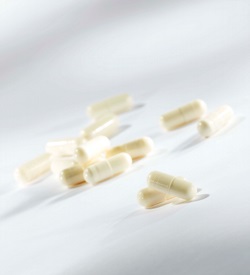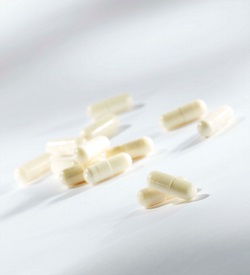Free Delivery on $50+*
Providing Quality & Trust
Ivermectin Capsule
Wedgewood Pharmacy
Starting at $85.00
$85.00 Each
Detailed Description
Ivermectin
Capsule
Ivermectin may be prescribed for
- Infection-Parasitic
One of the dosage forms available for Ivermectin is Capsule. Wedgewood Pharmacy compounds more than 2,000 formulations in capsule form. The potency of each compounded capsule is verified through weight and yield checks before it is dispensed.
19 strengths of Ivermectin Capsule are available, ranging from 15 mcg/cap to 5000 mcg/cap.
How is this medication useful?
Ivermectin is an antiparasitic drug thatis used to treat many different parasites in various species. Ivermectin is also used to treat and prevent heartworm and lung parasite infections, some intestinal parasites, and various kinds of mites that may infectthe skin (ie,mange) and ears. The FDA (U.S. Food & Drug Administration) has approved this drug for use in several species, including dogs, cats,
and horses, for treating different parasitic infections or preventing heartworm infection. The FDA allows veterinarians to prescribe and use products containing this drug in different species or for other conditions in certain situations. Ivermectin is also FDA approved for
Monitoring
- Clinical efficacy
- Adverse effects/toxicity (see Adverse Effects and Overdose/Acute Toxicity); evidence of ivermectin toxicity (especially lethargy, ataxia, tremors, mydriasis, blindness, hypersalivation and vomiting).
- Antiparasitic resistance in horses and livestock (ie, fecal egg count reduction [FECR] test
Storage / Stability
Ivermectin is photolabile in solution; protect from light. Unless otherwise specified by the manufacturer, store ivermectin products at room temperature (20°C-25°C [68°F-77°F]); excursions between 15°C to 30°C (59°F-86°F) are permitted for most products. Solutions are flammable and must be stored away from heat, sparks, open flame, or other sources of ignition.
Environmental exposure to ivermectin may adversely affect fish and other waterborne organisms. Dispose of unused ivermectin by incineration or in an approved landfill. Use caution during treatment to prevent feedlot water runoff from entering lakes, streams, and ground water.
Ivermectin 1% oral solution (equine tube wormer product) is stable at 1:20 and 1:40 dilutions with water for 72 hours when stored in a tight container, at room temperature, and protected from light.
Compatibility / Compounding Considerations
If compounding from the concentrated injectable forms, institute multiple check systems to reduce the chance for overdose.
When should this medication not be used or be used very carefully?
No drug is 100% safe in all patients, but your veterinarian will discuss with you any specific concerns about using this drug in your
animal.
This drug SHOULD NOT be used:
At higher than labeled dosages in dog breeds that may have a certain mutation (MDR1) until they are tested for this mutation. This mutation is most commonly found in “white feet” breeds, including collies, Australian shepherd dogs, shelties, and long-haired whippets. Dogs that have this mutation may be overly sensitive to the drug, which can resultin toxicity.
In animals that are allergic to ivermectin or other avermectin drugs (eg, selamectin, moxidectin).
In animals less than 6 weeks of age.
In dairy animals or horses that are to be used for food.
In turtles, tortoises, indigo snakes, and skinks. Ivermectin is toxic in these species.
This drug should be used WITH CAUTION:
In dogs without a current heartworm test. Dogs must be tested for heartworm infection before being given ivermectin-containing
products. Dogs infected with heartworms are atrisk of having a serious adverse reaction (caused by the rapid die-off of immature
heartworms) following drug administration.
In birds. Ivermectin can be toxic in several species of birds, including orange-cheeked waxbill finches & budgerigars. It should only
be used under the direct guidance of a veterinarian with experience treating birds.
In cats younger than 1 year, which may be at higher risk for neurologic toxicity.
If your animal has any of these conditions, talk to your veterinarian aboutthe potential risks versus benefits.
What are the side effects ofthis medication?
Side effects that usually are not serious include:
Horses: Itching, irritation, pain, swelling of the skin. When parasites begin to die, a mild allergic reaction to the dead and dying
parasites can occur.
You don’t have to be overly concerned if you see any of these signs unless they are severe, persistent, or worsen. Contact your
veterinarian if this happens.
Side effects that may be serious orindicate a serious problem:
Neurologic toxicity. Toxicity is more commonly seen with higher doses in kittens and dogs with the MDR1 genetic mutation.
Can handling this medication be hazardous to me, my family, or other animals?
There are no specific precautions required when handling small animal products of this medication unless you are allergic to it. When
using any large animal formulation, do not eat or smoke, and wash your hands well after use to avoid accidentally getting any of the
drug into your mouth. Avoid contact with eyes.
How should I dispose ofthis medication ifI don’t use it all?
Dispose of ivermectin carefully; it can be very toxic to fish, turtles, and other wildlife.
Do notflush this medication down the toilet or wash it down the sink. If a community drug “take-back” program is available, use this
option. If there is no take-back program, mix the drug with coffee grounds or catlitter (to make it undesirable to children and
animals and unrecognizable to people who might go through your trash), place the mixture in a sealable plastic bag to keep itfrom
leaking out, and throw the bag out with the regular trash.
Do not save leftover medication for future use or give itto others to use.

Powered by nopCommerce
This site is running in live payment mode. Real payments will be processed.

